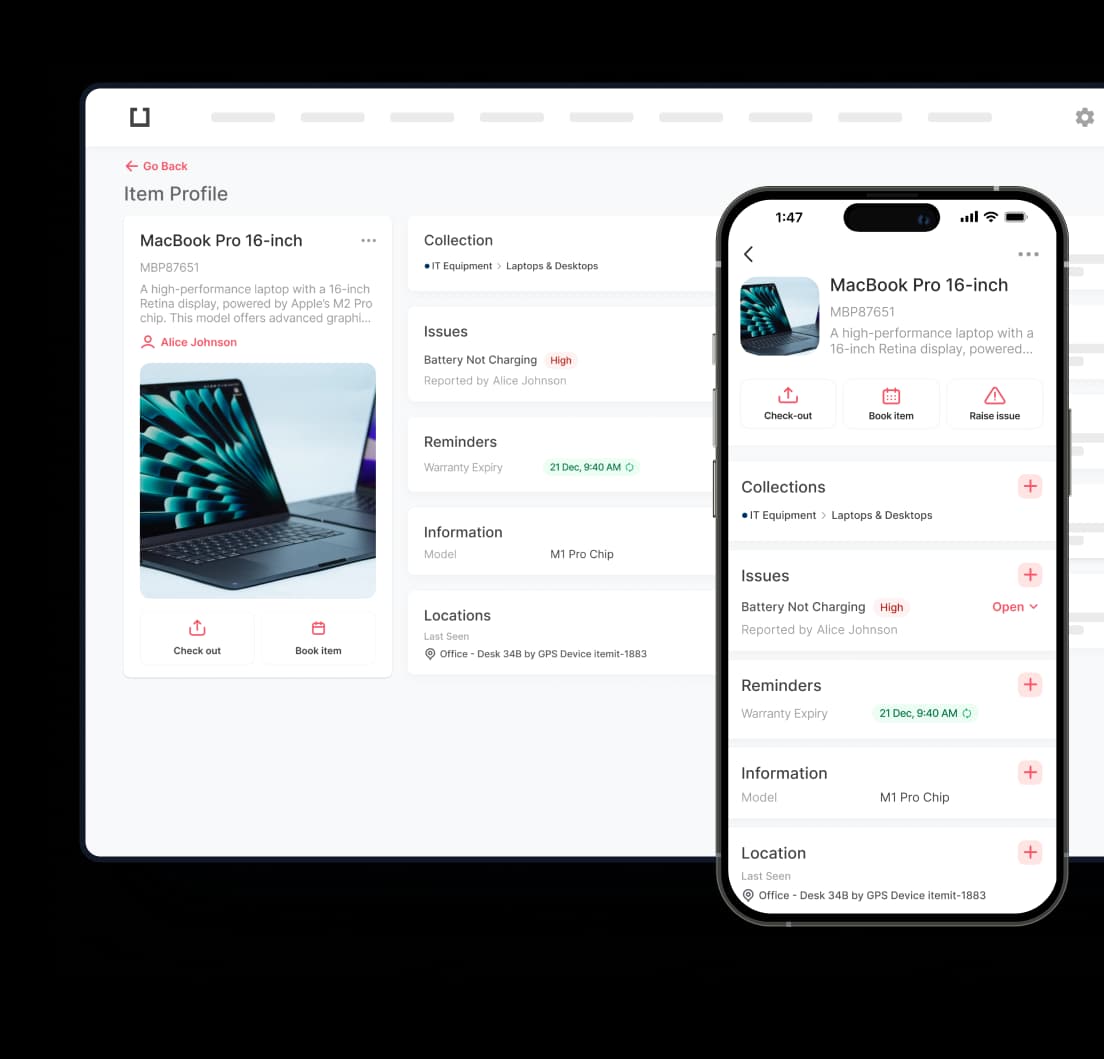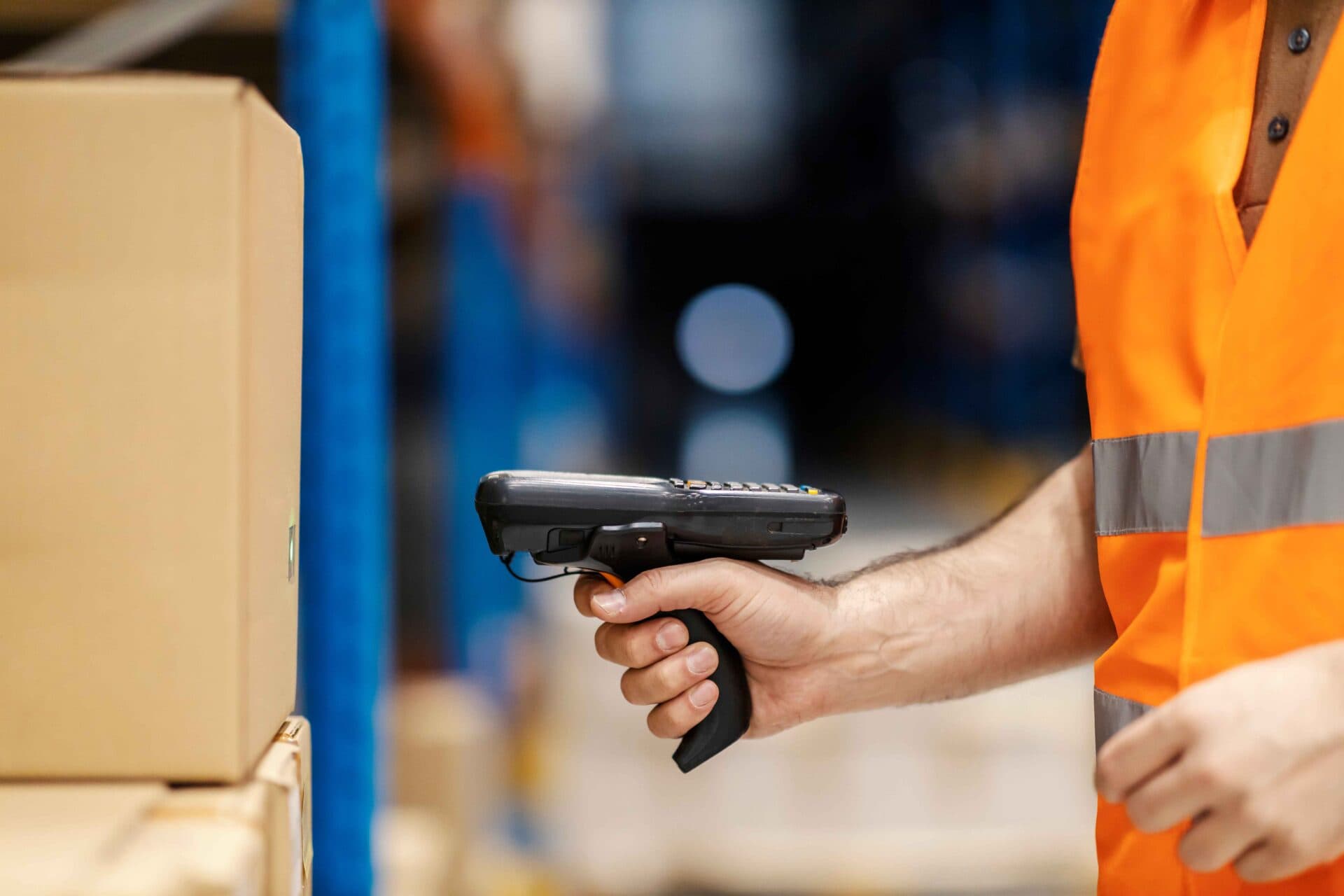Many businesses prefer to keep track of their assets using asset tracking software. An asset tracking software helps you monitor the movement and other essential details of every asset you own. This can include anything from your IT gadgets to the most basic office furnishings.
What Is Asset Tracking Software?
Asset tracking software, also known as asset management software allows you to keep track of your assets and their exact location. Apart from that, it also helps businesses and organisations stay organised and efficient.
Asset tracking refers to managing assets through specialised software designed for this purpose. Keeping track of where an asset is at all times is essential. The software solution lets you check on the status of any asset's information at any time, from any location.
itemit lets you create an asset register to keep track of all the essential information about each asset. Our asset management software comes equipped with several useful functions. You can keep track of everything you own with the help of these asset tracking tools and features.
Powerful Features Offered By itemit
Different asset tracking software on the market have a variety of features. Having a better understanding of these features will assist you in selecting the best asset tracking software for your company.
Depending on your needs, you will always have various options. Still, we have compiled a list of the features offered by itemit that make it the best asset tracking software out there.
1. Maintence Tracking
Robust asset maintenance is fundamental to every business’s success. With itemit, you can easily ensure that your assets are in good condition. This reduces downtime while also extending the asset's life.
You can also create maintenance schedules and receive notifications when each asset needs repair.
2. QR And Barcode Asset Tagging
itemit believes that you can use any tag that you want on your items depending on your requirements, budget and ease of understanding. With Itemit, you can label your assets with one of the following tags:
- GPS tags
- Barcodes
- QR codes
- RFID (Radio Frequency Identification) tags
Asset tags enable you to scan an asset and see the asset's digital record right away without having to search for it.
It helps you to view and edit the information on a QR code asset tag, scan the tag with itemit's built-in QR/barcode scanner. When you scan this tag, the asset's location and the user who scanned it are updated. It also enables you to map out asset movement history, which you can use to make better and more specific future planning decisions.
3. GPS Asset Tracking Capabilities
One of the most important goals of asset management is to be aware of the location of your assets. You can accomplish it by using GPS.
Different asset management systems allow you to use different types of tags, depending on the method you are using. In addition to QR and barcode asset tracking, GPS asset tracking lets you track assets’ location in real-time over large distances.
Your GPS tracker does not need any manual or physical interaction instead, it will automatically update the information about your assets. This information primarily includes the location of your assets.
4. Attaching Photos, Manuals, And Forms
A profile picture helps you keep track of your assets and keep them organised. It can be tough to sort out assets from so much textual information without any images. Finding a picture in a list of assets adds another layer of identification. Plus auditing and updating records are much faster if you have a fixed asset register with images, manuals, and forms.
5. Checking In And Checking Out Equipment
Besides location tracking, itemit also allows you to check in and out your assets using the app. Anyone who wants to check-in and out will find our app extremely useful.
Having a check-in and check-out feature is critical to the security of your assets. You will be able to check the fixed asset register as you work your way through the system to see what checks in and what is out with a single click.
Conclusion
These are only some of the features that make itemit such a great choice for your asset management needs. While our asset tracking software includes all of these essential features, we also take into account each company's unique needs when it comes to asset tracking.
We hope that the information in this article helped you find the features you were looking for. However, before making a decision, you should think about the needs of your business and your preferred asset tracking method. If you have any questions, feel free to reach out to team@itemit.com for more information.




